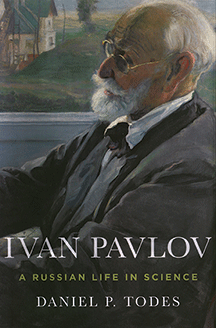

This observation suggested to Pavlov that natural salivation response had become generalized to a stimulus that was originally neutral. Some dogs would even salivate when they heard the footsteps of the person who gave them food coming down the hall. Pavlov noticed that while dogs would naturally salivate when food was in their mouths, they salivated at the sight of food. Ivan Pavlov discovered classical conditioning while studying the salivation responses of dogs. Once the neutral stimulus has become associated with the unconditioned stimulus, it becomes a conditioned stimulus (CS). While dogs naturally salivate when food touches their tongues, Pavlov noticed that his dogs' salivation extended beyond that innate response. After training with Piccolo, after hearing 'DODGE' Gohan would try to dodge. Origins and Influence Pavlov’s discovery of classical conditioning arose out of his observations of his dogs’ salivation responses. Then after a year he rang the bell add the dog salivated expecting a treat. He played a bell, and gave a dog a treat.

The concept of a conditioned response has its origins in classical conditioning. Classical conditioning (also known as Pavlovian or respondent conditioning) is learning through association and was discovered by Pavlov, a Russian physiologist. You see, back in 1903, Scientist Pavlov made the discovery that animals, Humans included, will react if you condition them. After a few repetitions of the light-food process, the dogs began to salivate in response to the light without any food being provided. In these experiments, the neutral signal was the sound of a tone and the naturally occurring reflex was salivating in response to food. One of the best-known examples of classical conditioning is Pavlov's classic experiments with dogs. By giving dogs food seconds after turning on a light, Pavlov found that the dogs could develop a conditioned response (salivation) to a previously neutral stimulus (the light). In simple terms, classical conditioning involves placing a neutral stimulus before a naturally occurring reflex. Pavlov - Pavlov (or its variant Pavliv) may refer to: Pavlova (cake) - Pavlova is a meringue-based dessert named after the Russian ballerina Anna Pavlova.The term classical conditioning also refers to the subject animals learning from the pairing of a. food) is paired with a neutral stimulus (e.g. The concept of conditioned response has its origins in classical conditioning, which was discovered by Ivan Pavlov. Classical conditioning (also respondent conditioning and Pavlovian conditioning) is a behavioral procedure in which a biologically potent physiological stimulus (e.g.A conditioned response is a learned response to a previously neutral stimulus.


 0 kommentar(er)
0 kommentar(er)
